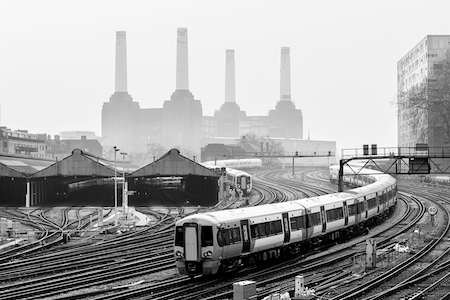Since the start of the year, financial markets have been on a downward path, as investors price-in higher bond yields. The MSCI World index is down 17% since the start of the year. In the United States, the S&P 500, down 19% over the same period, is about to enter bear market territory.
Unusually, the fall in stocks and other risk assets occurred in tandem with the biggest fall on record in US government bonds, dating back to 1973. In an inflationary environment, which calls for higher interest rates, stocks and bonds are positively correlated. Gold prices and gold ETFs have edged lower too this year, as real rates have risen.
Earlier in the year, the International Monetary Fund revised its world economic growth forecasts downwards by 0.8 and 0.2 percentage points in 2022 and 2023. It also revised its inflation forecasts upwards sharly by 1.8 and 2.8 percentage points across advanced and developing economies in 2022.
TrustedBrokers.com, a Forex comparison service for traders, discusses strains that are now materialising across the world’s leading economies.
China
In China, where the country’s political leadership is pursuing a zero-Covid strategy, retail sales fell 11 per cent year on year in April, while industrial production was down 3 per cent. Home sales dropped more last month than in the early months of the pandemic, despite the People’s Bank of China loosening monetary policy to encourage borrowing and spending. Unemployment is now on the rise.
A slowdown in China is of concern because it accounts for 19 per cent of the world’s total output. A pullback in consumer spending and industrial production there has had a knock-on effect on demand for goods, services and commodities, affecting both Europe and emerging markets.
Europe
Europe is experiencing a cost of living crisis, brought about by higher energy and food prices in the wake of Russia’s invasion of Ukraine. With inflation reaching 7.4 per cent in April, prices are rising faster than nominal wages in most Eurozone countries. The fall in real incomes is constraining spend and capping economic growth. This prompted the European Commission to issue one of its largest ever growth downgrades.
But the European Commission isn’t calling for a recession yet, and still expects unemployment to fall from 7.7 per cent in 2021, to 7.3 per cent this year and 7.0 per cent in 2023. However, the Commission also draws attention to adverse scenarios that could tip the Eurozone into a recession. These include further rises in energy prices or a halt in Russian gas supplies. The latter would hit Germany and Italy the hardest.
USA
The US job market is exceptionally tight, with the number of Americans on jobless rolls at its lowest since 1969. The shortage of workers has led to strong wage gains that are fanning inflation across the economy. The rise in prices beyond food and energy, across services and shelter, prompted the Federal Reserve to adopt a more hawkish policy stance.
Whilst few economists expect a recession in 2022, signs of a slowdown are mounting across economic sectors sensitive to interest rates. Used vehicle sales dropped 19% year-on-year in April, as buyers pushed back on high prices. Meanwhile, rising home prices and mortgage rates caused home sales to fall to their lowest since June 2020.
Earnings reports published last week by retail giants Walmart and Target show consumers swiftly shifting spend away from goods, towards services. Worryingly, they also show a fall in discretionary spend, as consumers have no choice but to spend more on groceries and energy. This is a negative for the US economy, which relies on a strong consumer.
Emerging markets
If the developed world’s challenge lies in adjusting to significantly higher prices, poorer countries face the almost insurmountable task of overcoming food and fuel shortages, at a time when the value of their US dollar-denominated debts is rising. The high cost of food was one of the driving forces behind the Arab Spring, which saw governments fall across the Middle East in the early 2010s. Protests have already erupted in Sri Lanka, Argentina and Peru over shortages and soaring prices, and more could follow.
A most uncertain outlook
Last week, the financial markets took fright too. The S&P 500 recorded its largest drop since June 2020: all 11 sectors of the index fell, with consumer discretionary and consumer staples taking the biggest hits.
Amongst investors’ fears, that China, whose spending helped support the world economy in the last global recession, is in deep trouble, with a large property debt overhang, and a zero-Covid strategy, which is bringing down the demand for, and supply of goods.
Questions around the world’s next growth engine remain unanswered, as the United States tightens monetary policy in an attempt to rein in inflation, and Europe faces its worst cost of living crisis in a generation.



 Bitcoin
Bitcoin  Ethereum
Ethereum  Tether
Tether  XRP
XRP  Solana
Solana  USDC
USDC  TRON
TRON  Lido Staked Ether
Lido Staked Ether  Cardano
Cardano  Avalanche
Avalanche  Toncoin
Toncoin